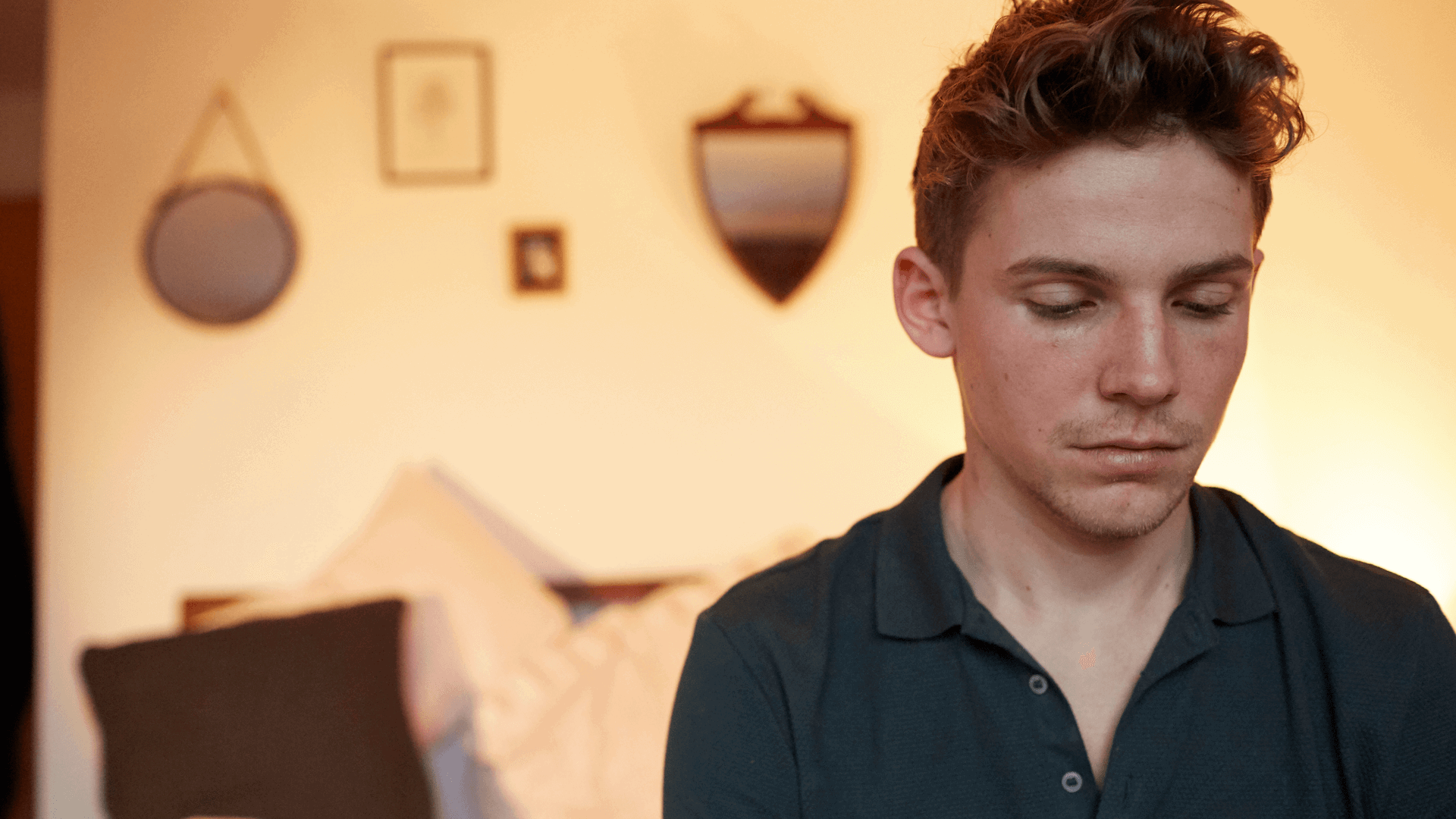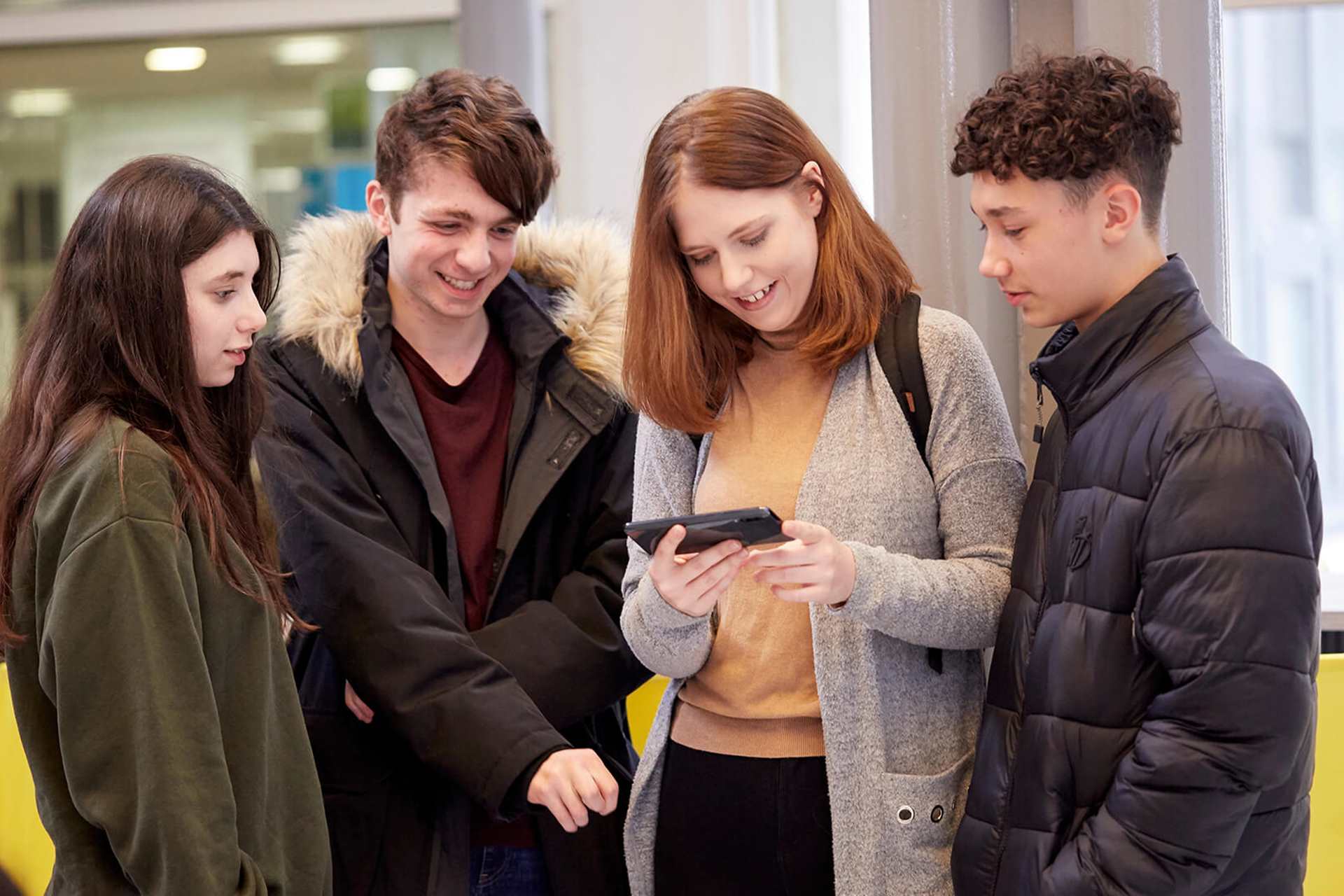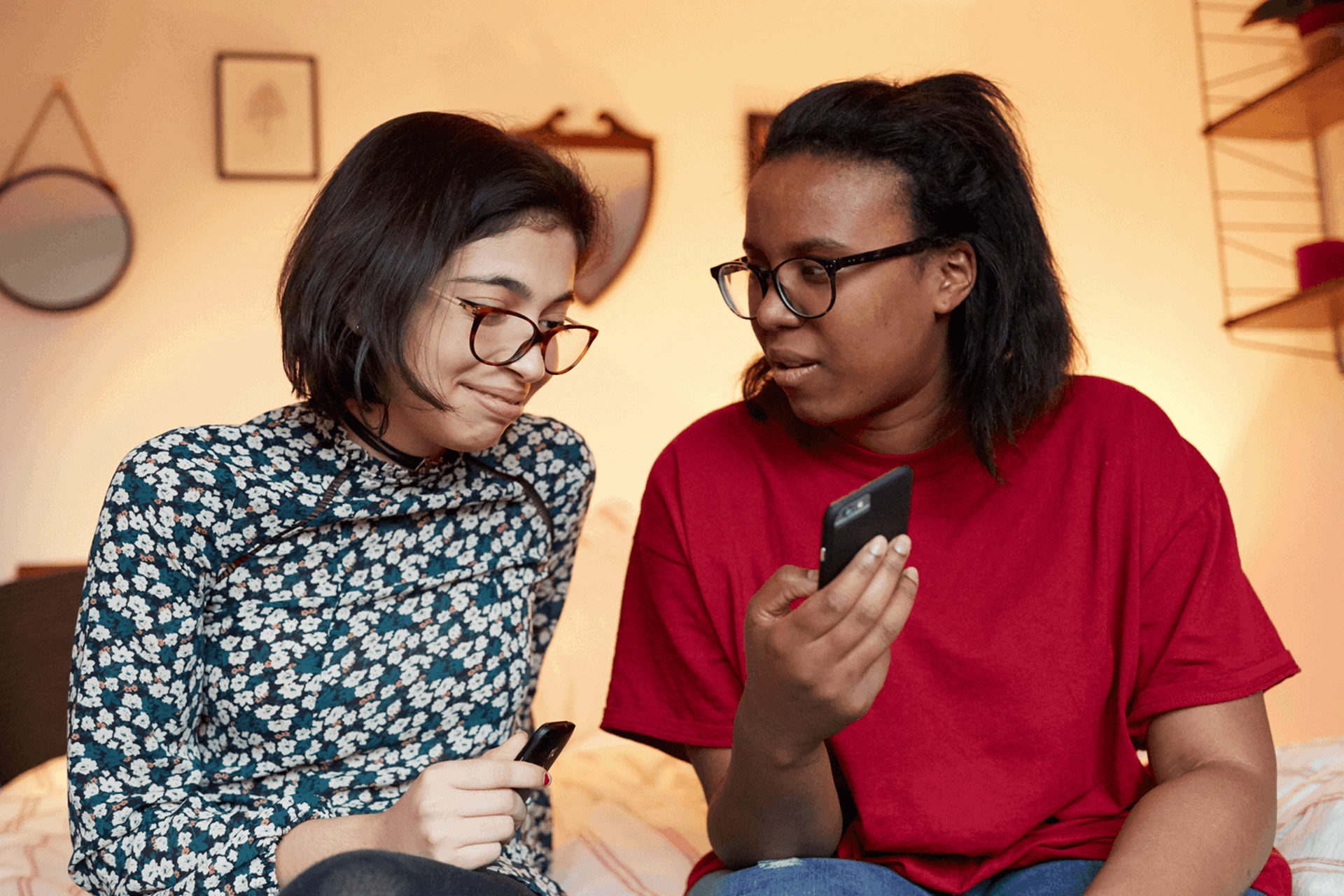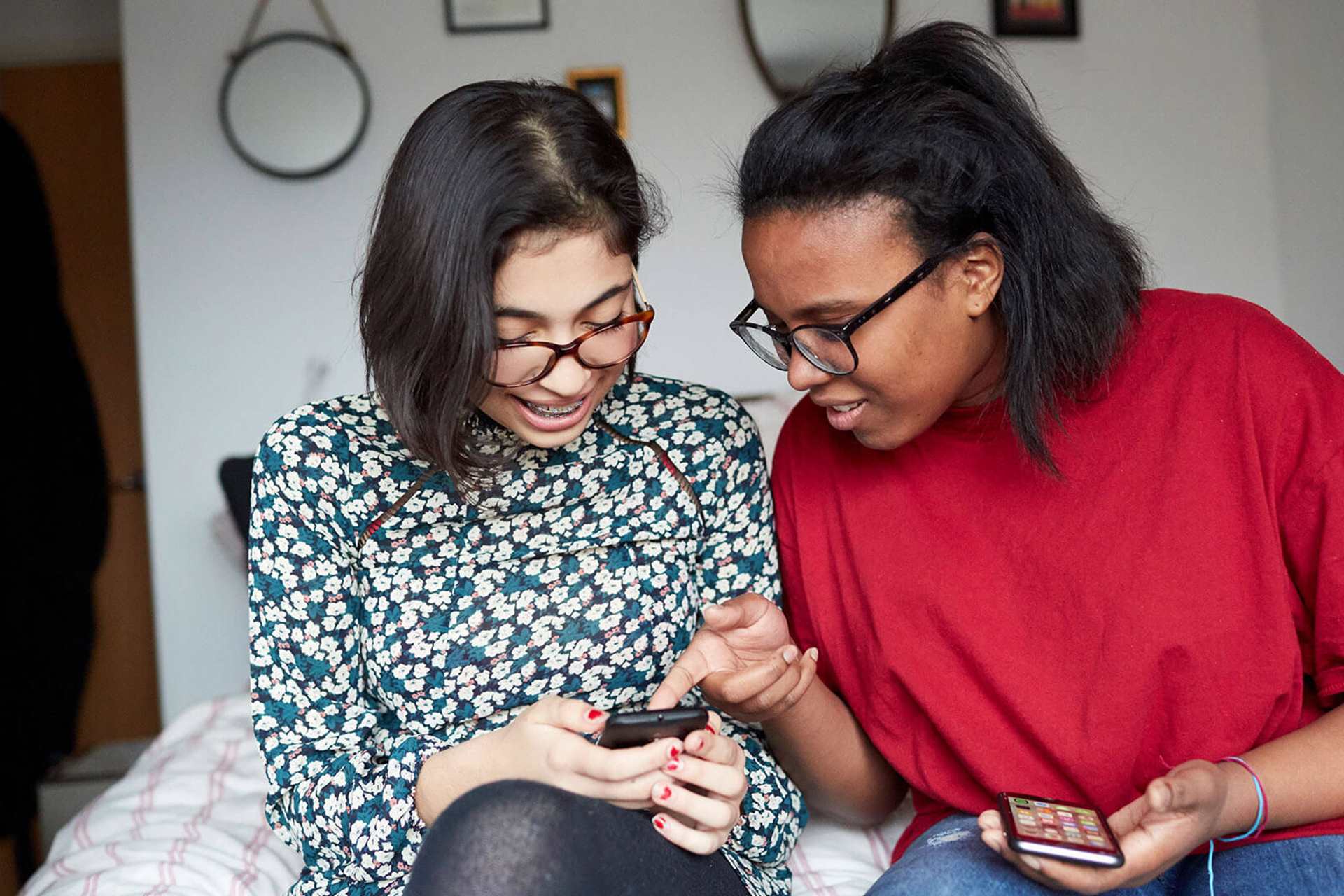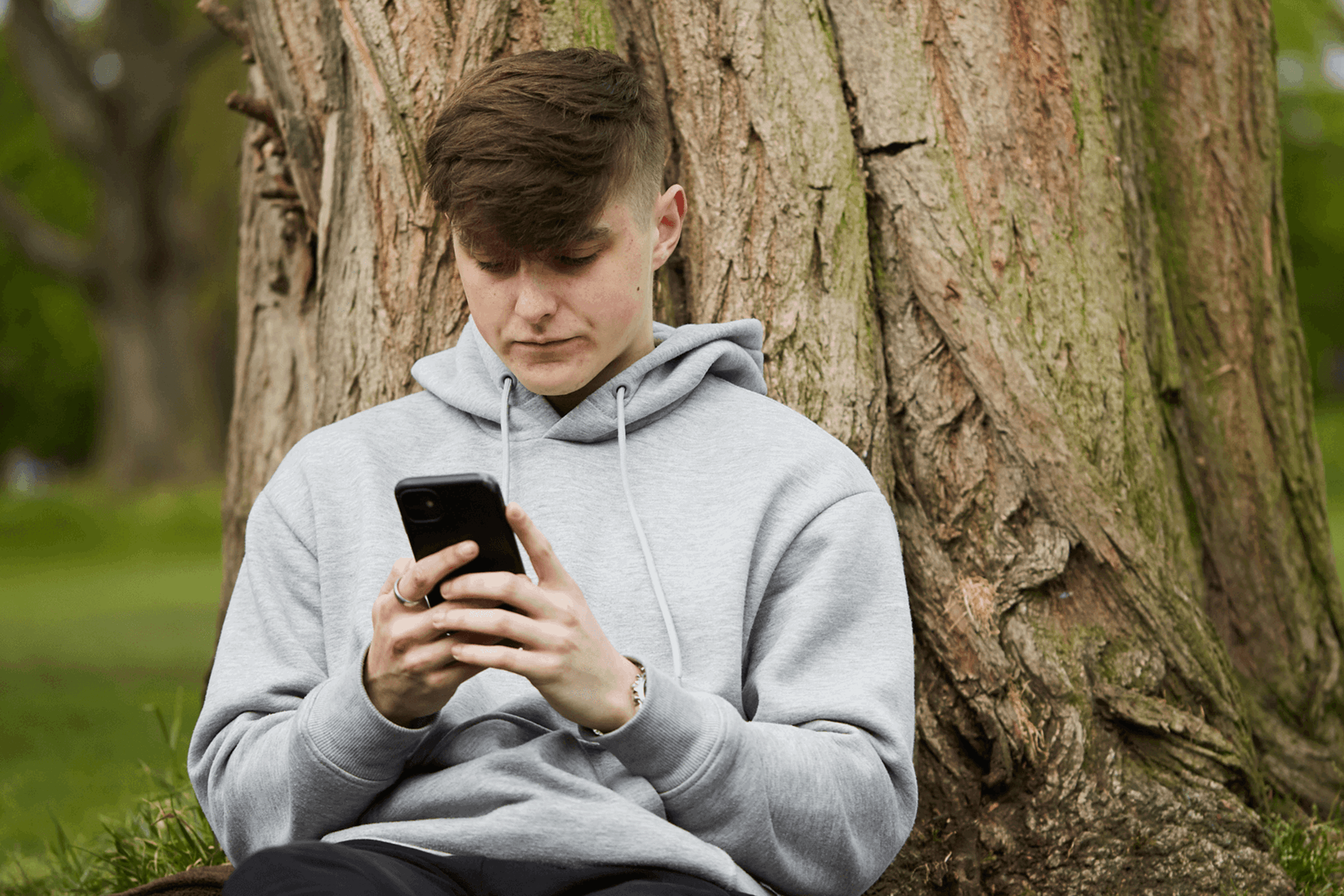Topics mentioned: social media, self-care
About: Social media can be a powerful way of connecting with others, but if you’re consistently seeing things that make you feel sad, angry, anxious, stressed or bad about yourself, it can have a negative impact on your mental health. Two of our bloggers, Aglaia and Emily, share how taking time off from social media has helped them.
Emily:
Social media is a weird and wonderful thing. It connects us to people, makes us laugh and allows us to relish in our interests and passions. But I’ve found that spending lots of time on social media can have a negative impact on our mental health.
Nowadays, most of us are hardly ever without our phones. They’re always there waiting to devour our attention. That constant pressure to always be online, always reply, always post the best pictures – it can be so overwhelming. More often than not, we log on for two seconds only to blink and an hour has gone by. We bounce from one social media app to another, mindlessly scrolling, double-tapping and comparing ourselves to others, and it can feel hard to break this cycle.
That constant pressure to always be online, always reply, always post the best pictures – it can be so overwhelming.
Aglaia:
If you are sensitive and struggle with your self-esteem like me, social media can feel very toxic at times. Whether it’s going on Instagram and seeing what feels like a gallery of “perfect” bodies, or going on LinkedIn and seeing people who seem to be constantly succeeding at life, it can be really hard not to feel bad about yourself.
When I was spending a lot of time on social media, I felt like there was a gap between who I was and who I wanted to be. It felt like I always needed to catch up.
When I was spending a lot of time on social media, I felt like there was a gap between who I was and who I wanted to be. It felt like I always needed to catch up.
Changing our relationship with social media
Aglaia:
Over the years, I’ve realised that I have to be in the right mindset to deal with social media and, more importantly, I don’t need to seek acceptance from others at all costs if I can accept myself.
For me, having a social media detox does not necessarily mean removing myself from social media completely. Rather, it means being more mindful of how social media makes me feel. In the modern world, avoiding social media altogether is difficult. But by reminding ourselves of the importance of self-acceptance and self-love, we can learn to have a better relationship with social media. Part of that is using it in a way that feels authentic and positive for us.
In 2018, when I was diagnosed with bipolar disorder, my whole world collapsed. I was ashamed, lonely and I felt misunderstood. I had to get away from social media, focus on myself and remove all the noise. Already feeling inadequate because of my diagnosis, I didn’t need any reminders of my “abnormality”.
But with time, as I learnt to accept my diagnosis, I also started to share my life unfiltered and use my experience to advocate against mental health stigma. Social media turned from a disturbing addiction to a way to express myself, live my values and try to make a small change.
I don’t need to seek acceptance from others at all costs if I can accept myself.
Emily:
Christmas 2020 was when I first decided to have a real social media detox. I wasn’t doing well mentally – my anxiety and depression were worse than ever – and being stuck inside glued to my screens for the last year definitely wasn’t helping.
So, over the Christmas period, I logged out of all my social media apps, deleted them from my home screen and drastically cut my screen time. For the first day or two, the temptation to log on was REAL. It was like my hands were just itching to scroll and double tap! However, once I’d gotten over that initial withdrawal, it got a lot easier. I initially intended to stay off social media for two or three days but I ended up staying unplugged for almost a week! I loved feeling disconnected from the chaos of the rest of the world. I loved being in the present moment with my family rather than deep diving into my Explore page. I loved the feeling of just taking pictures for the memories, rather than for Instagram. I felt so…free.
For the first day or two, the temptation to log on was REAL. It was like my hands were just itching to scroll and double tap! However, once I’d gotten over that initial withdrawal, it got a lot easier.
I loved my social media detox so much that since then I’ve completely changed the way I use social media – and my phone in general. Often when my mental health gets worse, I find myself spending more time on my screens mindlessly scrolling and trying to avoid my problems. That’s when I make sure to reduce my screen time or unplug from social media altogether. It’s probably one of my favourite forms of self-care. It allows me to switch off, focus on the people I am closest to and do other self-care activities like going out for walks, listening to music, talking to my friends in person, reading and playing board games.
Often when my mental health gets worse, I find myself spending more time on my screens mindlessly scrolling and trying to avoid my problems.
Tips for your first social media detox
Emily:
So, if you’re curious about trying a social media detox, here are some of my top tips:
-
Think about distractions
Try doing your first detox at a time where you know there will be plenty of other stuff to distract you. I found it a lot easier to forget about my phone when I had other things to focus on.
-
Tell your friends and family
You don’t want anyone thinking you’ve disappeared off the face of the Earth! Plus, that way you can make sure to stay in contact with the people who mean the most to you via text, call or in person.
-
Silent mode and Do Not Disturb are your best friends
You won’t be distracted by notifications and you can set it so that calls from important people (mum, dad, best friend etc.) will still make a sound.
-
Remember you don't need to be available 24/7
If you can’t reply to that message right now, save it for later. If you can’t answer that call, don’t. If you’re not in the right headspace for the group chat, mute it for a few hours.
-
Turn off your notifications
Turn off your social media app notifications so that you only see your notifications when you actually log in to the app. This stopped me from being tempted to check my phone every time I heard the *ding* of a notification. It also made me feel more in control of when I use my social media.
-
Don't be too hard on yourself!
Most of us have grown up surrounded by screens and social media. We can’t imagine a world without it! It’s really hard to avoid something that is so part of our daily lives. Start your detox small – an hour first thing in the morning or before you go to bed, then work your way up. Something is always better than nothing.
By reminding ourselves of the importance of self-acceptance and self-love, we can learn to have a better relationship with social media. Part of that is using it in a way that feels authentic and positive for us.
More information and advice
We have tips and advice to help you find the support you need. Take a look at our guides.
Where to get help
However you're feeling, there are people who can help you if you are struggling. Here are some services that can support you.
-
Childline
If you’re under 19 you can confidentially call, chat online or email about any problem big or small.
Sign up for a free Childline locker (real name or email address not needed) to use their free 1-2-1 counsellor chat and email support service.
Can provide a BSL interpreter if you are deaf or hearing-impaired.
Hosts online message boards where you can share your experiences, have fun and get support from other young people in similar situations.
- Opening times:
- 24/7
